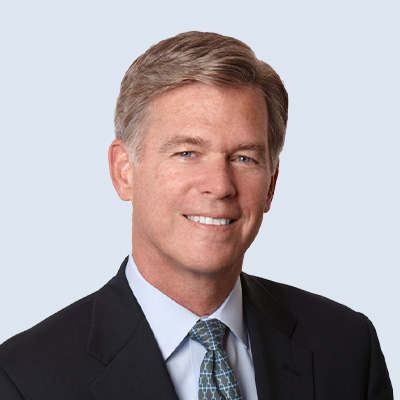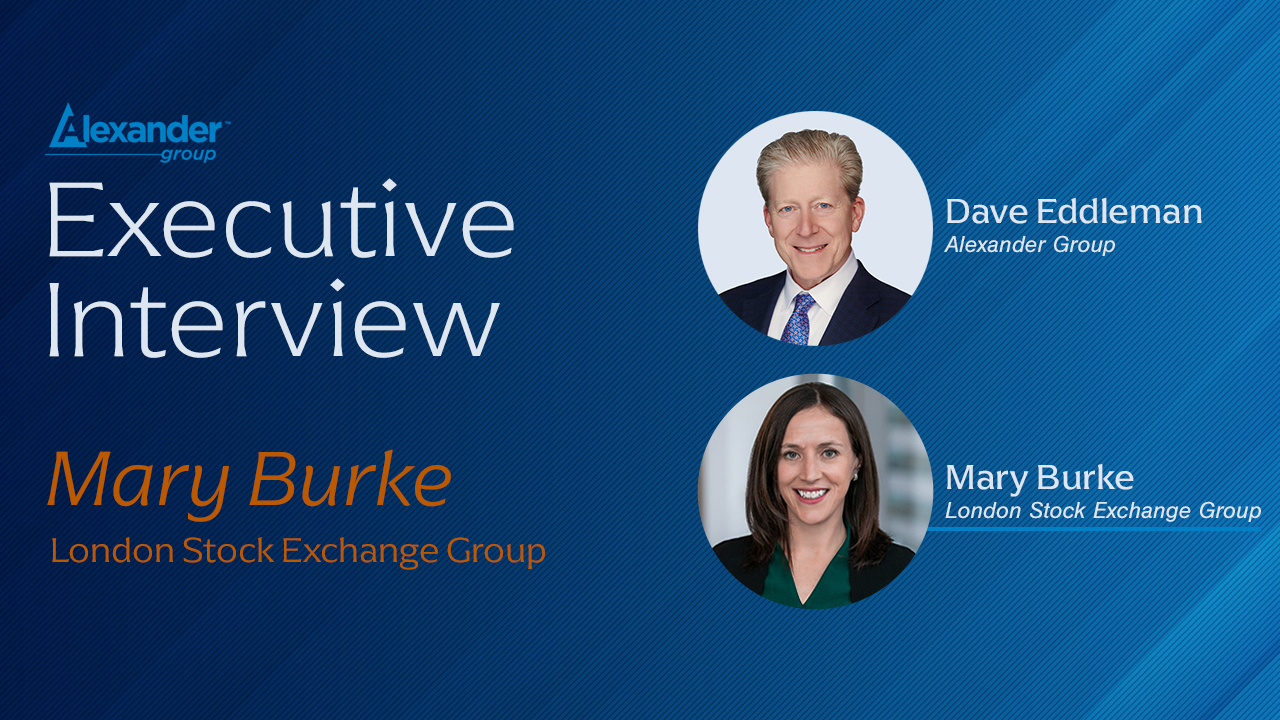Gary Tubridy: Gary Tubridy here. I’m here with Jason Marx, CEO of Wolters Kluwer Tax and Accounting, and we are talking about convergence at the 2024 Executive Forum. Jason, welcome.
Jason Marx: Glad to be here.
Gary Tubridy: It’s great to have you here. So let’s start with a question about how things are changing. Business is changing rapidly. Customers demanding more. Technology surrounding us is causing change. How do you see these changes shaping the leadership today, and how does that influence how you lead your company
Jason Marx: Yeah, well, I don’t think it happens in a vacuum. Like we don’t change simply for the purpose of changing. It’s driven by customer drivers. What are the needs that our customers have? How are they looking to adapt? How are they looking to grow? Our role is to really think about what those things are and begin to give them the technology, the solutions that they need in order to effectively grow and manage their own businesses.
Gary Tubridy: Yeah. Your leadership journey is both a driving market growth and also leading transformation. And so there are two separate kinds of things. How do you guide your company? How do you navigate your company through a transformation while also needing growth?
Jason Marx: Yeah, I learned a long time ago you don’t get the chance to pause and wait till everything.
Gary Tubridy: We wish we had that right.
Jason Marx: So it really is a balancing act. You have to be able to invest in the right areas, to have the right talent, to be able to effectively change the organization while you’re accelerating growth. Says easy, does hard. But what it really requires is an understanding of what those key drivers are. Where are the places to make your bets? Where do you need to make the investments in technology and people in new process in order to drive that change? While really making sure you have your eye on the future, right? So we tend to do that, and I tend to do that by really looking forward and then working our way backwards to where we are today as a starting point and how we get to that future state.
Gary Tubridy: Any drivers that you’ve consistently seen as something to really pay attention to in the recent past?
Jason Marx: Talent is critical. Yeah. I mean, having the right people. Not just enough seats on the bus, but the right belly buttons in the seats becomes really important. So, you know, I’ve been fortunate to build a strong team over the last couple of years. Um, I think that’s really been a key part of our success, is having the right leaders with the right motivations to drive that change and then giving them the empowerment And frankly, the opportunity to go drive that change in the organization.
Gary Tubridy: You know, I’ve heard you speak about empowerment and it takes guts to empower your organization because you’re letting them go do something without being right there. And yet that is also what builds the trust that you speak to, isn’t it?
Jason Marx: Yeah. I think it’s maybe more than guts. It’s a little dose of humility. I’m rarely the smartest person in the room. Thankfully, we have a lot of bright people with really good ideas. What we do is have a healthy debate about the objectives and the strategies and how we’re going to get there. And what that does is it really makes us smarter. Right? Disagreement is not emotional. It’s really about getting to the facts of the business drivers and the priorities. And then we use that to all get smarter when we walk out of the room, so that has been an important part of that process. My job is not to have all the answers. I rarely do. I have questions, I have lots of questions, but that makes me smarter in the process, too.
Gary Tubridy: Let’s talk about the pandemic for a second. It forced the leaders to adapt quickly and really rethink how they interacted with their customers and their teams. How did that experience shape your leadership style and what lessons did you take from that?
Jason Marx: Yeah, you know that the pandemic for me was both a humbling experience, as well as something that has stayed with me. For everybody, it was deeply personal. But it was also professional. And that balance for me as a leader of finding the sort of intersect between personal and professional, truly caring about the individual in a different way. Leading with empathy and frankly, humility. Because this was new for all of us. I think I’m not just a better leader. I think I’m a better human for that process. And that’s hopefully been translated in how we think about our team, how we take care of people when they need it, how we meet them in the moment, with empathy, with a human-centered approach to things.
Gary Tubridy: You mentioned in your recent talk how seeing your teammates, your colleagues in a different light with a picture in the background, a dog or a child, in the frame. All of a sudden kind of reminds us that there’s another side of them. And I got to know that a little bit.
Jason Marx: Yeah. Look, the pandemic was a horrible thing for the world. If there’s any professional silver lining. I think it’s that it forced us to have a small window into people’s lives in a very positive way, in a human way. So yeah, like now we can have a conversation. I know their dogs, I know their kids. I know where the vacation photos are on the wall. I know if one of them’s changed. And interestingly, you’ve seen like the kids pictures change on the walls as the kids grow up. So I find that personally now to be something I look forward to rather than something I don’t understand.
Gary Tubridy: You know, as a leader, one of the things you have to do is spot opportunities. Spot them and then position your organization to exploit them. How do you do that?
Jason Marx: We’re external. I believe a role of the CEO is really to be outbound. So I spend a lot of time out in the market talking with customers, meeting with our colleagues, really understanding what drives it so we don’t do anything in a vacuum without understanding what the customer drivers are. In fact, we have a term we use. It’s called contextual inquiry. And we use that contextual inquiry really to question what’s happening in a customer’s organization. So we look at the moments of process.
So when they’re using our software what are they doing the 10 seconds before a click and the 10 seconds after? And then we ask why. So it’s a really intense deep understanding of the client process. And we bring that data back. We bring that information back to really understand how they operate. How are they are they using the software in unforeseen ways? Sometimes that’s opportunity. Other times it’s just areas of focus that we realize they’re doing things in three steps that we intended in one. Well, that’s on us. And so we can go back and fine-tune processes. So it’s really that process of contextual inquiry is how we understand latent needs, how we think about what customers are doing and how they’re doing it. And it’s where we focus on innovation. It’s how we can drive better process, how we tech enable. Many of the things that our customers do is going out in the field and watching how they operate.
Gary Tubridy: I like the way you describe that. We stay close with our customers, we observe them, we have a dialogue with them. And you spot adjacent opportunities that are commercially viable right away.
Jason Marx: Yeah. Nothing interesting happens in my office. It happens in their office. So we go out to see how they actually work and operate and what they need and how they want it. And we do that enough times, we come back with a richness of data that guides us on what we need to do next.
Gary Tubridy: Those are adjacent opportunities. There are also things that we’ve talked about that are changes that you call one-way doors. There’s only one. You go through them once and there’s no going back. You spoke about this in terms of your SaaS transformation. Do you have a framework to think about one-way door opportunities and whether they should be taken or not?
Jason Marx: I do. They’re usually far and few between. You don’t want to take that many bet the franchise moments with the organization, but when they are there, it’s really about understanding what the drivers are behind it. So it’s fact-based for me. Like what are the drivers? Do we understand the risks? Do we have the proper mitigations to handle that? Do we feel we have the skill and the resource to drive that decision? And then if it doesn’t go well, do we understand what to do? Because again, you might not be able to go back through that door and you’re going to have to live in the moment of where you are and being able to make the changes to still make that experience for a customer.
Gary Tubridy: So there’s a lot of contingency thinking that goes into this.
Jason Marx: It’s option planning, it’s contingency planning, and sometimes it’s more like an insurance policy. It’s more understanding what those are. You never want them to happen, but if you don’t understand them, you never want to have to think about them in the moment. You want to have thought about them before. Now, fortunately, most of those things, in my experience, we’ve done the work upfront. So those things didn’t happen. But I feel much better. I feel more convicted about those decisions when we’ve had the discussions and we have the facts that support going forward.
Gary Tubridy: For executives who are facing a bit of your company’s kinds of moves. Any advice for them?
Jason Marx: Listen carefully. Not just internally, but make sure you have external conversations. There’s something I read recently in an article about companies that are terminally nice. Now I’m Minnesotan. I live in Minnesota, so we have this history of being Minnesota nice, which is a slightly different thing. But companies that are terminally nice, they don’t have the debate. And as the executive, if you don’t hear the voices in the room, if everyone says yes because you think it should be yes or says no because you think it should be no, you’re never getting the information you need to make a decision. So I don’t want an organization that’s terminally nice. I want people to act professionally and respectfully and nice. Nobody likes jerks. Nice is better. But I don’t want them to be terminally nice where we can’t have a disagreement but disagree and commit on how we’re going to go forward.
Gary Tubridy: That kind of goes back to the leadership style you spoke about. We have to elicit those points of view, process through them and then arrive at some conclusions. But better conclusions when you have multiple points of view.
Tell me about how AI is affecting your business and what you’re doing to set up to leverage these new technologies to be stronger.
Jason Marx: Yeah. Artificial intelligence and GenAI and some of the large language models are not new for Wolters Kluwer. In fact, we’ve been leveraging many of those technologies for the last decade or so. What has changed is customers understanding of them. So there’s much more of a demand for the efficiencies and the capabilities that come.
So like I said, we’ve been investing in artificial intelligence and large language models for almost a decade. What has happened? What’s happening now is we’re seeing both the internal use of those tools to drive capacity. So we’re investing in things that drive capacity to push more innovation and frankly, more release through the process. But we’re also seeing customers benefit from those. So customers have new ideas now in our world serving tax professionals and accountants. They’re seeing opportunities to deliver service differently. To understand tax compliance and regulation, how does that impact the specific user, the specific taxpayer, at a specific moment in time? Well, now the technology can connect a regulatory event with the individual circumstances of the client. Yeah, that’s really exciting. So for us that really brings together the capabilities of advisory services, the transactional services, and then how we help our clients deliver that service to their client.
Gary Tubridy: It’s almost like the AI is sitting out there as a tool that you can use your clients to help their clients.
Jason Marx: Absolutely.
Gary Tubridy: When you think about that, you’ve got a new technology coming on board that has great implications. You’ve got to challenge the status quo. You’ve got to have a culture that at once says, yeah, we’re going to do things differently or we’re going to look at doing things differently. At the same time, this is what we talked about earlier. You still have to deliver on your goals. So how do you develop a culture that enables you to challenge the status quo while also keeping your eye on the goal?
Jason Marx: Yeah, says easy does hard, right? It’s really creating an environment where people are not only encouraged to experiment but they’re expected to. So we have times that are set aside for people just to go off and experiment. We have, we call it code games, but it’s an opportunity for our teams to come together, over 2 or 3 days and create ideas. And what’s fun about that is not only do we see real commercial opportunities come out of just two days of work, but we make it a little bit competitive. We have some judging, we have a contest and the winning ideas we commit to fund. So not only can somebody anywhere in the organization have an idea and bring it forward into the judging process, but if we select the top percentage of these, we’ll fund that idea. And so they get to see that move forward, whether it’s in internal operational excellence idea or something external, they’ve thought about to support our markets. They get to see it develop and launch and go out to market.
Gary Tubridy: I heard three things. And I really like it. Commit the time. It’s okay to have fun. And then take the best ideas and commit to action.
Jason Marx: That’s right. And I think, that point of fun, that’s a big part of it. We all spend a lot of time doing what we do. Our team is incredibly passionate about solving problems for our customers and our market. That’s their driving purpose. But sometimes it’s okay not to take yourself so seriously. We can have fun with it. We’re solving really important problems, but we can do it in a way that is fun and people enjoy it and they see the fruits of their labors and success.
Gary Tubridy: Last question. We have a dynamic environment that we’re operating in, and there’s a combination of a need for a bold vision, but also, frankly, thoughtful execution. So there’s a bit of a balancing act here. Any advice that you would offer for executives who are looking for that balance?
Jason Marx: Yeah, I think it comes back to first listening. Right. You have to be listening to the organization.
Gary Tubridy: That’s a common theme here
Jason Marx: Yeah, well, there’s a heartbeat of the organization, and if you’re not listening for it, you miss the important signs or symptoms of problems. So I think one of those things is to be really clear in the communication about where we’re headed. I see my role as really helping to guide which mountain top we’re going to climb to. Now, I rarely know the path. I have an inkling of the direction, but I don’t know which path. There’s multiple paths to get to the top of the mountain. What I find is that you bring people together with lots of smart ideas and the freedom to think about them and implement it, you find the optimal path. And for me, it’s that balance being able to look at what’s happening and where we’re going. Clarity of vision. Clarity of purpose. Clarity of mission. And then giving the teams the freedom to move within that. To identify the proper path to get there. It’s how I’ve personally been able to balance those things for the organization.
Gary Tubridy: You not only find a better path, you having engaged the team, have them on board and willing to make that move together.
Jason Marx: Absolutely.
Gary Tubridy: Yeah. Jason, great to have you here. Thanks so much. I appreciate it.




